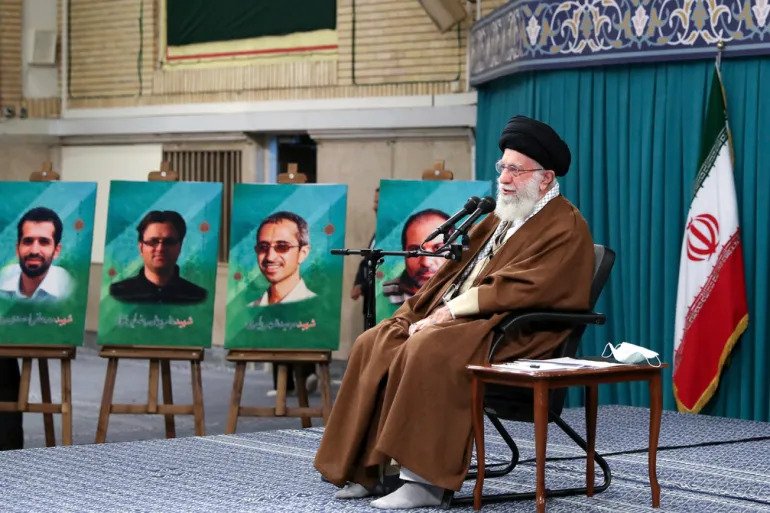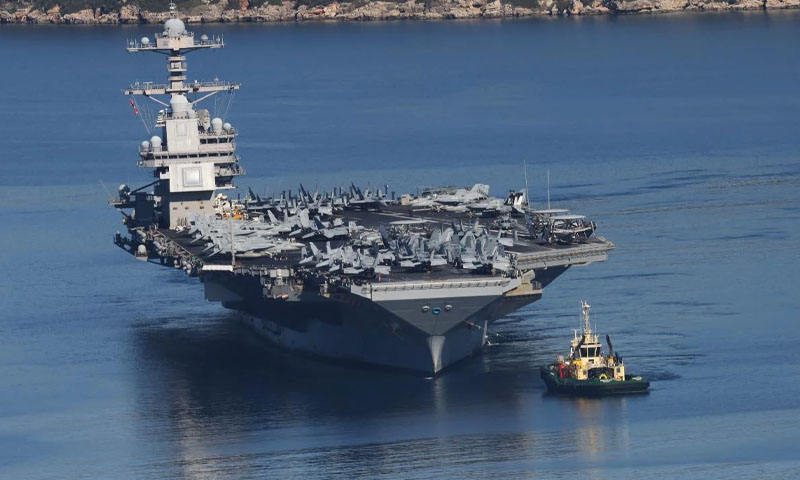- Web
- Today
Iran’s supreme leader Khamenei issues stern warning to Israel over Gaza bombardment
-

- Web Desk
- Oct 17, 2023

TEHRAN: Iran’s Supreme Leader, Ayatollah Ali Khamenei, issued a stern warning to Israel, cautioning that its continued bombardment of Gaza could lead to a broader conflict. Khamenei accused Israel of “genocide” in its assault on the besieged Gaza Strip and asserted that Iran-backed forces in the region would not remain passive indefinitely.
Khamenei emphasized the responsibility for a response to the situation in Gaza, stating, “If the crimes of the Zionist [Israeli] regime continue, Muslims and resistance forces will become impatient, and no one can stop them.”
These remarks are the latest from Tehran, signaling to Israel and the United States that Iran-backed groups in the region, often referred to as the “axis of resistance,” could potentially join the ongoing conflict between Israel and Hamas, Al-Jazeera said.
Iran’s Fars News Agency reported that Islamic Revolutionary Guard Corps (IRGC) Deputy Commander-in-Chief Ali Fadavi also issued similar warnings, declaring, “The resistance front’s shocks against the Zionist regime will continue.”
The prospect of an expanded conflict involving not only Hamas but also more formidable Iran-backed groups, like Hezbollah in southern Lebanon, has been a looming concern throughout the 11-day war.
Iranian President Ebrahim Raisi reiterated on Monday that supporting the Palestinian cause was Iran’s top foreign policy priority, but he acknowledged that the armed groups in the region make independent decisions.
EU maintains restrictive measures against Iran under the non-proliferation sanctions regime
Israel has been conducting airstrikes on Gaza since Hamas launched a surprise attack on southern Israel on October 7, resulting in numerous casualties. The humanitarian situation in Gaza has deteriorated significantly, with reports of food, water, and electricity shortages. Israel has also launched an aerial assault causing extensive damage and a high number of casualties, with Palestinian authorities reporting more than 3,000 deaths and 12,500 injuries.
Israel has indicated its intent to eradicate Hamas and has mobilized hundreds of thousands of military reservists, raising the possibility of a ground offensive in Gaza. Military experts have underscored the challenges and potential heavy losses associated with any ground operation in densely populated areas.
The Israeli military has hinted at considering alternative options as it prepares for “the next stages of the war” against Hamas, though specific details were not provided. The potential for other armed groups to join the conflict looms as a significant concern.
The United States has taken measures to deter Iran-backed groups from becoming involved in the conflict, such as deploying troops and positioning aircraft carriers in the eastern Mediterranean. Israel has cautioned that any party joining the fighting would face severe consequences.
However, an escalation in the conflict could pose substantial challenges for Israel, including the threat of missile barrages from Hezbollah’s formidable arsenal and the possibility of a two-front war, stretching its military capacity.




